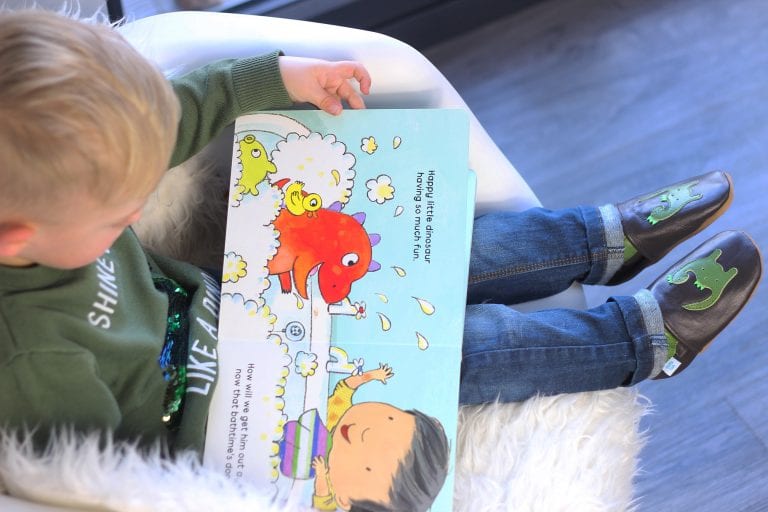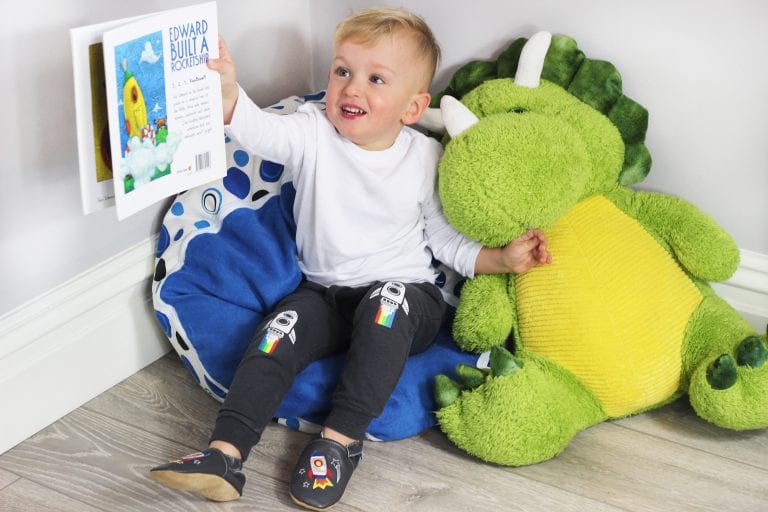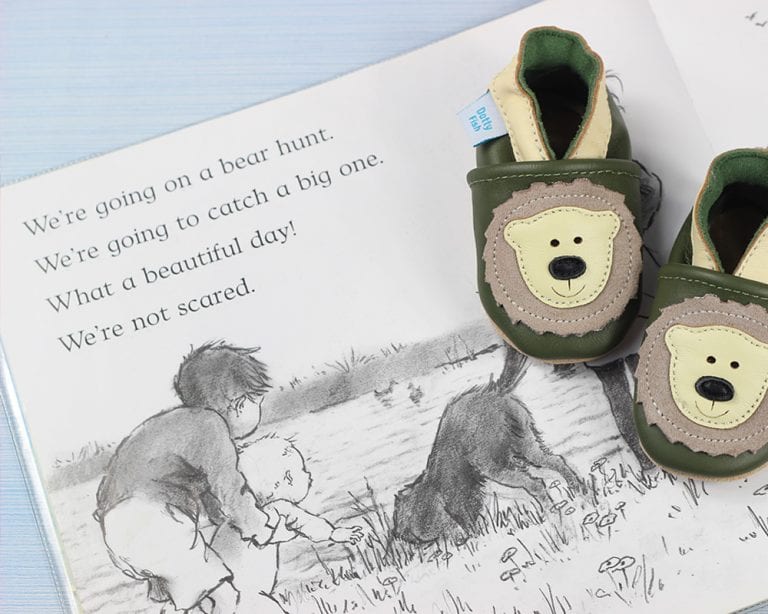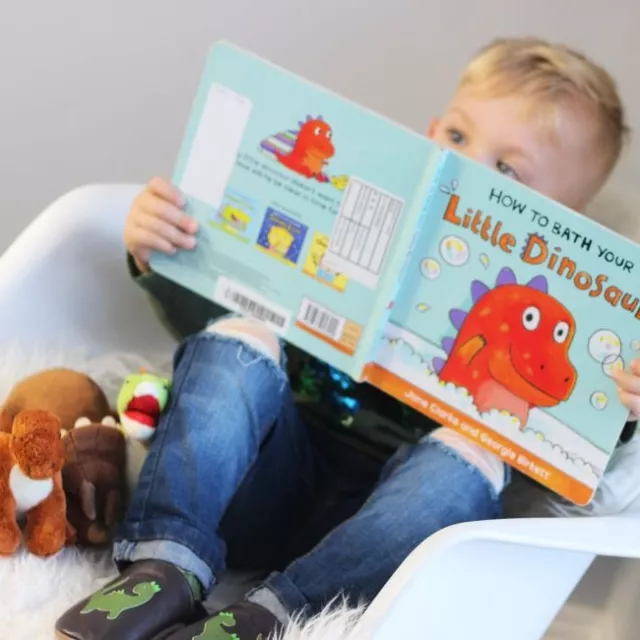Babies and toddlers can’t read yet but they love being read too and listening to stories.
A love of reading can start at such a young age and it is a delight to be able to read with toddlers. Sharing their favourite books again, and again, and again! Toddlers are great little mimics and they will sit down with their toys and ‘read’ them a story. All this helps them develop a love of reading that will benefit them in the future.Library Visits
Your local library is the place to head for the best selection of children’s books. They can choose books themselves from the huge range of stories and books on offer. Something you can’t replicate at home. They usually have a fantastic selection of board books that are perfect for little hands to explore by themselves. There are also lots of longer stories to choose from that are great for sitting down together and reading. Even just simple picture books are great for extending language and encouraging communication in young babies.Libraries are also great places to meet other parents and toddlers. Your local library will often have rhyme time and story time sessions as well as other activities. All designed to enrich a child’s language development and socialisation, and all free!

Sitting Still
Toddlers and little children, in fact all children, are made to move. The whole “sit still and I will read you a story” is an old-fashioned idea. Toddlers are moving and wriggling all the time, but they are listening! Don’t expect them to stay sitting while you read book after book, some may, but most won’t. That shouldn’t stop you from reading to them – their little brains are like sponges taking it all in. They might be dancing around but they are listening and eventually they may well come on over and sit down and point at all the pictures and ask lots of questions. Be open to reading while they are moving. Be guided by your toddler, if they are too wriggly and distracted then try again later.Another great tip when they are sitting and looking at the book is to point to words and pictures as you read. This helps older children link the words they hear, together with the pictures and words they see.

Story Sacks
A story sack can be the simplest thing to make but can really bring a book to life when reading with toddlers. They can extend children’s learning and get them talking. An old pillowcase or reusable cotton bag can be your story sack. Fill it with a story and some props to help the story come alive. A classic story is brought to life using a few of the toys your toddler already has and a little bit of imagination. This is all about extending language development as well as sensory play and getting children involved. Using familiar toys as well as things with texture is a great way to do this. If you don’t have suitable props then a cut out picture works just as well, or a wooden spoon with a character drawn on it.As always, I like to head to Pinterest to get some ideas. We have saved a few in our Messy Play and Toddler Activities boards. Turning their favourite story into a game where they act out the story is such a fabulous way to ignite their imagination. An old favourite like Goldilocks and the Three Bears or The Three Little Pigs can be totally transformed with a simple story sack.

Repetition
While visiting the library is brilliant and it gives you lots of opportunities to find new books for your little ones there is something quite special about a favourite book. Toddlers are creatures of habit and both babies and toddlers find routine calming and reassuring. They will happily listen to the same book again and again. This also has important implications for language development. A good idea, as they get older and language starts to develop, is to pause at familiar, repetitive points. This allows them a chance to say the words along too. Very young babies will just often mimic the pattern, this then develops into words and speech as time goes on.Language development is not a linear process and it isn’t ‘one size fits all’ so don’t worry if your child isn’t developing as quickly as another child. It is important to seek advice if you are concerned though. Some simple tests, like a hearing test, can alert you to problems. The earlier these are detected the better. Talking Point is a wonderful website full of information and advice for parents. They have a great Progress Checker that not only flags up problems but also gives you valuable resources to seek professional advice.


